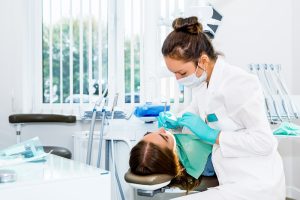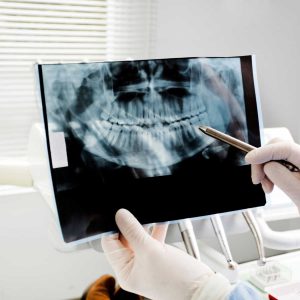The Importance of Regular Oral Exams: What You Need to Know
Regular oral exams are essential for maintaining good oral health. At his West Sayville, NY dental practice, preventive dentist, Dr. Richard Sigismondi, DMD, offers comprehensive oral exams to help patients maintain healthy teeth and gums. In this helpful guide, learn more about the importance of regular oral exams, including the steps involved, how to prepare, and much more. You can also call our dental office, situated in Long Island NY dialing 631-563-1583.
What is an Oral Exam?
An oral exam is a comprehensive examination of your teeth, gums, and mouth. During an oral exam, your West Sayville dentist will check for signs of tooth decay, gum disease, oral cancer, and other issues that can affect your oral health. Oral exams typically involve a consultation, teeth exam, oral cancer exam, gum disease exam, and x-rays.
The Benefits of Regular Oral Exams
Regular oral exams offer several benefits, including:
- Early Detection: Regular oral exams can help detect dental issues early, which can prevent more serious problems from developing.
- Prevention of Problems: Regular oral exams can help prevent serious dental problems, such as gum disease and tooth loss.
- Improved Overall Health: Good oral health is linked to overall health. Regular oral exams can help you maintain good oral health and improve your overall health.
Preparing for Your Oral Exam
Before you visit our West Sayville practice, it’s essential to prepare. Some of the steps you’ll need to take to prepare for your oral exam include the following:
- Gather Your Medical History: Be ready to provide your dentist with your complete medical history, including any chronic conditions, allergies, or medications you’re currently taking. This information can be crucial in understanding your overall health and how it relates to your oral health.
- List Your Concerns: Jot down any specific concerns or questions you have about your oral health. Whether it’s persistent tooth sensitivity or a cosmetic issue you’d like to address, sharing your concerns with your dentist during the consultation can help them tailor the exam to your needs.
- Bring Previous Dental Records: If you’ve had dental work done at other practices, consider bringing along any relevant dental records, X-rays, or treatment histories. This can provide valuable insights into your dental history and assist your dentist in making informed decisions.
- Arrive on Time: Arriving on time for your appointment ensures that you have ample time to discuss your concerns with Dr. Sigismondi and undergo a thorough examination. It also helps maintain the dentist’s schedule, benefiting other patients as well.
The Steps Involved in Oral Exams
Consultation
The first step in an oral exam is a consultation with Dr. Sigismondi. During the consultation, Dr. Sigismondi will review your medical history and discuss any concerns you may have about your oral health.
Teeth Exam
The next step in an oral exam is an examination of your teeth. Dr. Sigismondi will examine your teeth for signs of decay, cavities, and other issues. He will also check your bite and look for any signs of grinding or clenching.
Oral Cancer Exam
Oral cancer is a serious condition that can be life-threatening if not detected early. Dr. Sigismondi will perform an oral cancer exam to check for any signs of cancer or precancerous lesions. This exam involves a visual inspection of the mouth, tongue, and throat, as well as a physical exam of the head and neck.
Gum Disease Exam
Gum disease is a common condition that can lead to tooth loss if left untreated. Dr. Sigismondi will perform a gum disease exam to check for any signs of gum disease, such as redness, swelling, or bleeding. He will also measure the depth of the pockets between your teeth and gums to check for any signs of periodontal disease.
X-rays
X-rays are an important part of an oral exam because they can reveal issues that are not visible to the naked eye, such as cavities between teeth or bone loss. Dr. Sigismondi may take X-rays of your teeth and jaw to check for any underlying issues.
Frequently Asked Questions
It’s recommended that you get an oral exam every six months. However, if you have a history of dental issues, you may need to get an exam more frequently. Your dentist will tell you how often you should see them for oral exams based on your level of oral health.
No, oral exams are not painful. Your dentist will use gentle techniques to examine your teeth and gums. If you experience pain or discomfort during a routine dental exam, tell your dental professional immediately as this may point to a dental problem they can diagnose and treat.
Oral exams are essential for both preventive care and addressing existing issues. Regular oral exams, typically recommended every six months, help detect and prevent problems before they become serious. They can catch issues like cavities and gum disease early when they are easier and less costly to treat.
Oral exams are generally safe during pregnancy, and maintaining good oral health is important during this time. However, it’s advisable to inform your dentist if you are pregnant or planning to become pregnant, as some treatments and X-rays may be postponed or modified to ensure the safety of both you and your baby.



